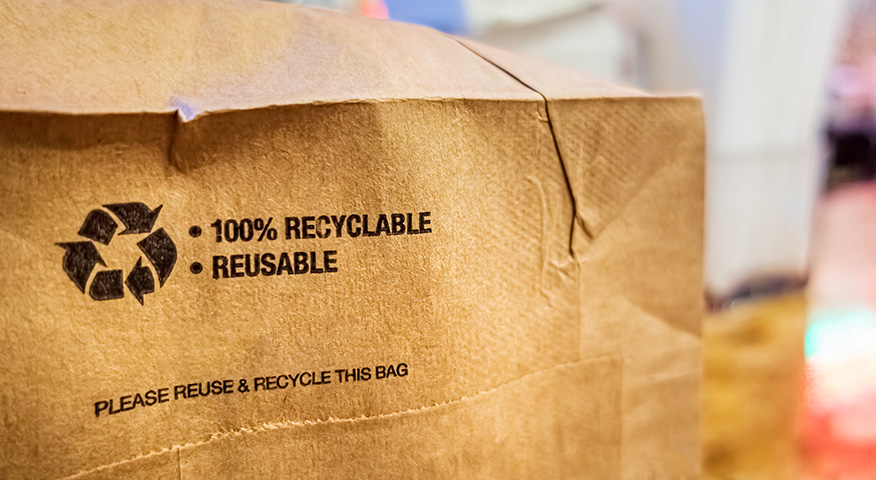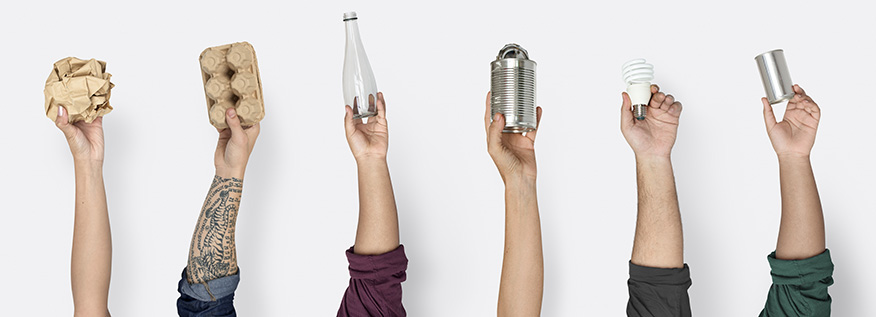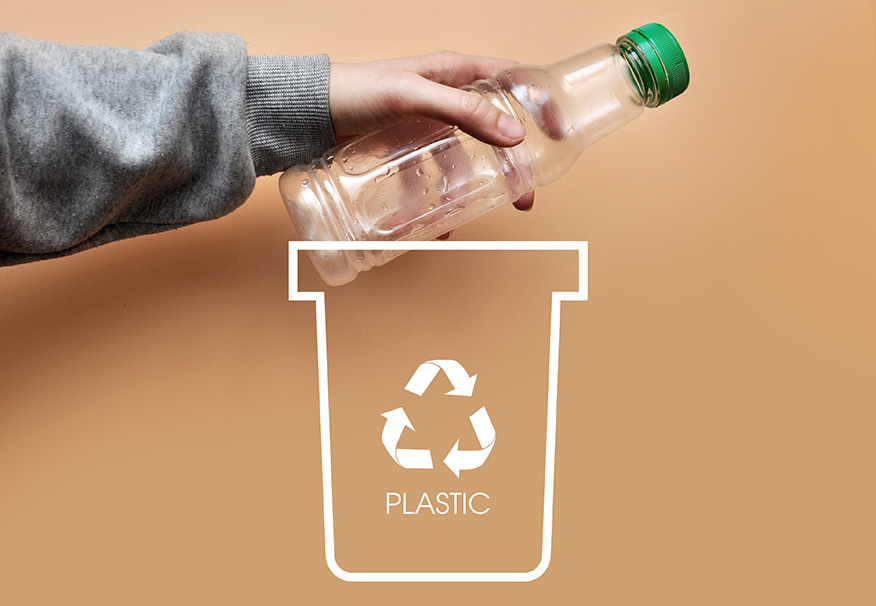
It can be hard to tell fact from fiction in today's world of opinions and expertise, Google and social media. We are bombarded with 'fake news' and misinformation. This has never been truer when it comes to the business of recycling and the environment.
A recent study found that one in three couples have admitted to having regular arguments about recycling and sustainability.
Are you surprised? We are plagued with never-ending amounts of packaging, local council rules and ever-changing 'advice' from papers, blogs, and news channels. No wonder it feels so hard to be eco-friendly.
That is why we have investigated some of the most common recycling myths to see what is true and what is false.

1. Aerosols can be recycled
True!
Most local councils will take empty aerosols. Check what your local council will and won't collect with the gov.uk checker.
2. Items with the triangle symbol on are recyclable.
False
The 'recycling symbol' or Mobius symbol is a category system to inform you of the type of plastic the packaging is made from. Not that it is recyclable.
The same goes for the 'green dot' (two green circles interlinked). This symbol means the company behind the product has 'financially contributed' towards a recycling scheme 'somewhere' in Europe. It has nothing to do with recycling itself.
If you find this information very confusing, that's because it is! In a way, it has been designed to be. We have tried to clarify some of the confusion with our recent post on what each 'recycling' symbol actually means. It may help!
3. Clean plastic packing before putting it in the bin
True
If you put plastic and cardboard/paper in the same recycling bin, you should clean all containers from any residue. This is because liquids from bottles and containers will compromise the fibre of card/paper when they interact, making them unusable. The same goes for card or paper with residue on.
Think of a pizza box covered in grease. Only the cardboard that has not interacted with the grease can be recycled.
4. You can put the wrong things in the recycling bin
False
Putting the wrong items in your recycling bin runs the risk of contaminating your bin and anything in the dustbin lorry, making the whole collection worthless and destined for the landfill. Landing you with a 'Yellow label of shame' or a fine (dependent on your local council).
5. All recycling is recycled
False
You would think it would be, right?! But, currently, in the UK, there just isn't the infrastructure to recycle all of our waste.
At each set of the sorting system, products are siphoned into different groups. But, unfortunately, there are always 'drop-offs' or waste. Two things can happen to 'drop-offs'; one is to ship it to countries with the facilities to dispose of our waste.

The effects of our recycling problem
The disposal of our recycling waste doesn't seem to be happening correctly, as you might have seen. In 2018 China banned all waste from foreign countries, citing that they were fed up with countries using under-the-radar channels to sneak their undesired 'recyclable' waste into the country.
Recently, Malaysia's environment minister had a similar statement after returning 42 containers of 'illegal' plastic waste from the UK. Yeo Bee Tin said his country would not be "a dumping ground of the world".
Recycling is essential and can be done, just not by dumping it in another country.
It is hard to be environmentally responsible when all the while we buy products wrapped in plastic, and our recycling systems cannot deal with the challenges mentioned above. The UK and the entire planet, is going to struggle to reverse the damage we have inflicted upon our home until we replace plastic with renewable materials or improve our recycling systems. Until then, we all need to try harder to be green.
To find out more about how our products are environmentally designed and can be specified to your business's needs, contact a member of our team today.






